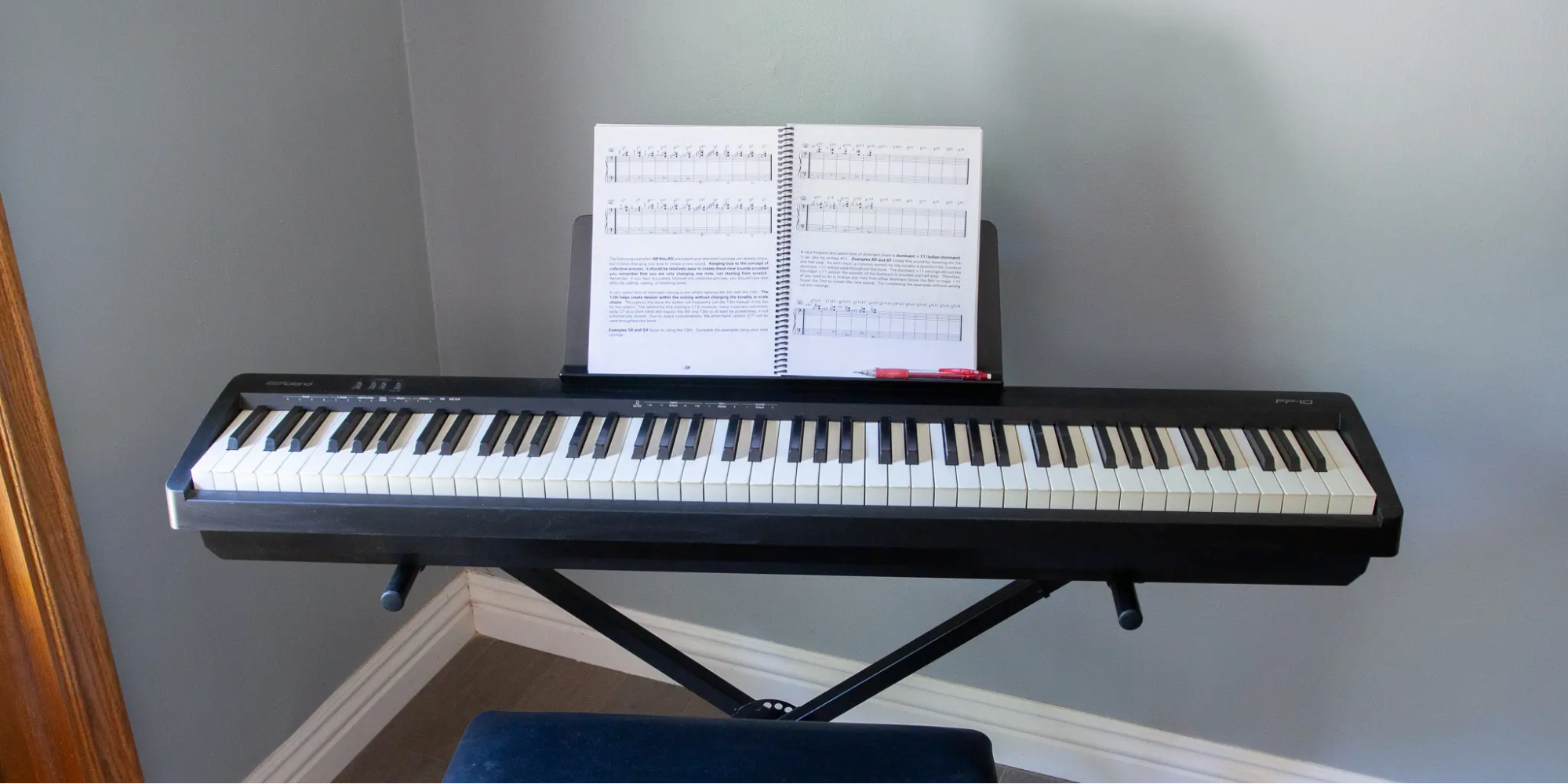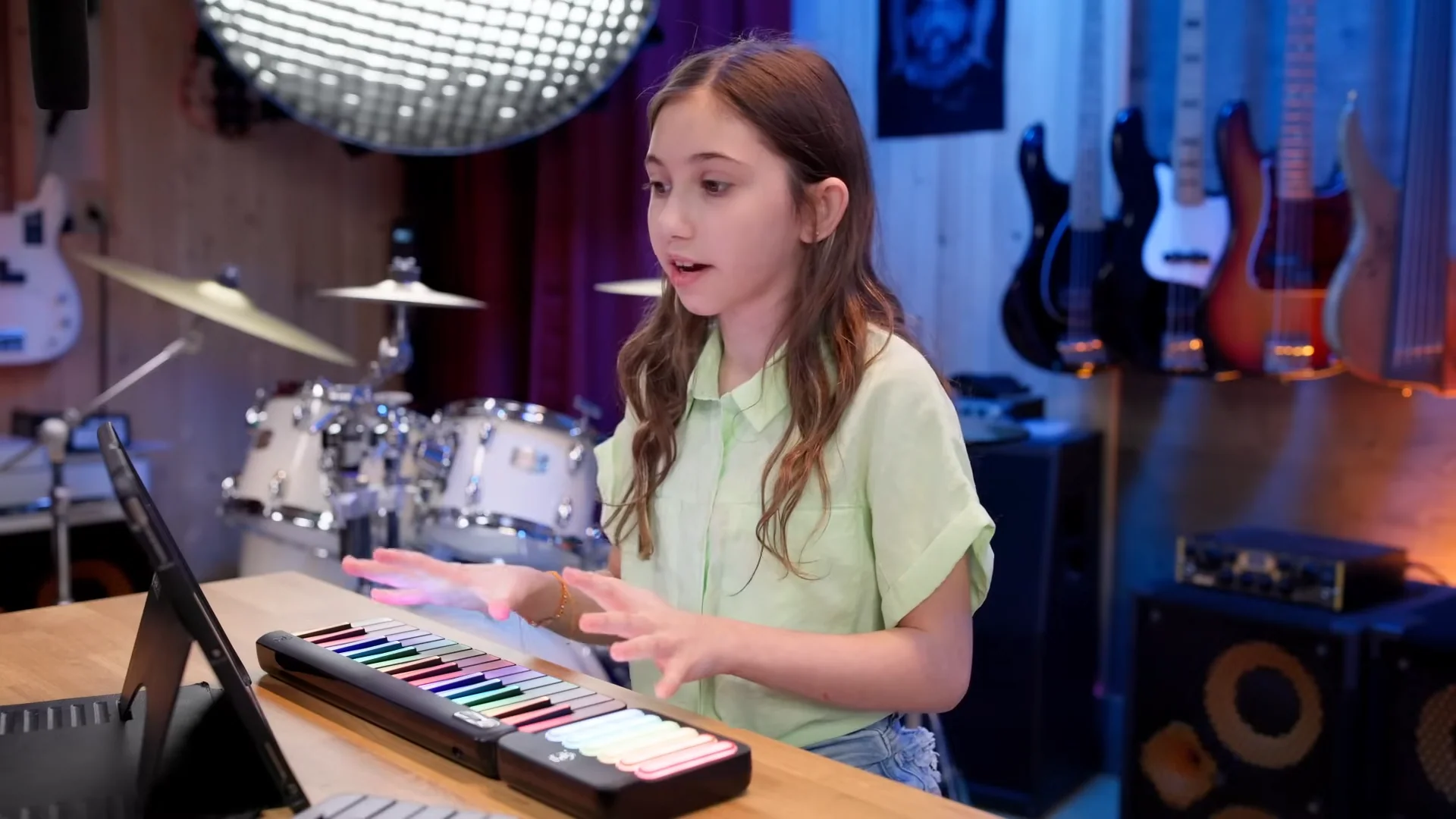
Choosing the right piano for home practice can be tricky. Should you go for a portable keyboard or invest in a stage piano? Each has unique strengths, depending on your space, playing style, and long-term goals. In this guide, we’ll explore the pros and cons of both, highlight key features, and help you decide which fits your home practice needs. Whether you’re looking for a best portable keyboard or a full-fledged smart piano, this article has you covered.
A portable keyboard is a lightweight, versatile instrument designed for mobility and ease of use.
Key Features:
Best for: beginners, casual practice, and musicians who need portability.
Smart Keyboard for a portable solution that combines smart features and portability.
Advantages:
Disadvantages:

A stage piano is a professional-grade keyboard designed for live performance, studio work, and high-quality home practice.
Key Features:
Best for: serious pianists, performers, and home users wanting studio-level experience.
Advantages:
Disadvantages:
The key action greatly affects your playing experience:
|
Feature |
Portable Keyboard |
Stage Piano |
|
Keys |
Semi-weighted or synth-action |
Fully weighted, graded hammer |
|
Touch Sensitivity |
Basic touch-response |
Advanced velocity and dynamics |
|
Ideal For |
Casual players, learners |
Serious practice, expressive performance |
Tip: If home practice involves classical pieces, a stage piano or weighted portable like the PopuPiano is recommended.
Sound quality is another key differentiator:
Using headphones with a portable keyboard like the Smart Keyboard can also provide a high-quality practice experience.
|
Feature |
Portable Keyboard |
Stage Piano |
|
Weight |
8–20 lbs |
25–60+ lbs |
|
Setup |
Easy, plug-and-play |
Requires stand, sometimes pedals and rack |
|
Storage |
Fits under bed or on shelf |
Needs dedicated space |
Bottom line: If you have limited space or plan to move your keyboard frequently, a portable keyboard is ideal.
Modern keyboards include smart features that enhance learning and creativity:
Stage pianos may offer some connectivity but often prioritize performance and sound over learning features.
|
Type |
Price Range |
Notes |
|
Portable Keyboard |
$200–$800 |
Affordable, versatile, great for learners |
|
Stage Piano |
$800–$3,000+ |
Investment for serious musicians, professional-grade touch and sound |
For home practice, a smart portable keyboard often provides the best balance of price, features, and convenience.

Recommended: The Smart Keyboard covers portability, smart learning, and quality touch—all in one compact unit.
Modern portable keyboards often include built-in lessons, light-up keys, and app integration, making them excellent for beginners.
Stage pianos generally focus on performance, so they rarely include educational features, making portable keyboards more suitable for learning at home.
While stage pianos are designed for live gigs, portable keyboards excel at easy transport:
If you plan to perform occasionally or travel, a portable keyboard like the PopuPiano Smart Keyboard combines convenience and quality.
Both types of keyboards benefit from accessories, but portable keyboards often require fewer extras:
Investing in a good headphone or stand can greatly improve your home practice experience, especially with portable keyboards.
Stage pianos tend to be more robust and long-lasting, but proper care applies to both instruments:
Portable keyboards require minimal upkeep but storing them safely is crucial for long-term durability.

When choosing between a portable keyboard and a stage piano, consider long-term goals:
The PopuPiano Smart Keyboard is a future-proof choice: it combines portability, smart features, and connectivity for years of practice and growth.
A portable keyboard is better for beginners due to affordability, portability, and learning-focused features. Stage pianos are ideal once advanced skills are developed.
Yes, especially models with weighted or semi-weighted keys. The PopuPiano Smart Keyboard is designed for both learning and expressive playing.
Often yes. Many stage pianos need stands, pedals, and possibly external speakers for optimal use.
Absolutely. Lightweight models are perfect for traveling or moving between practice spaces.
Yes, many offer Bluetooth or USB MIDI connectivity to work with tutorials, recording software, or music games.
Choosing between a portable keyboard vs stage piano comes down to your space, budget, and practice goals. For home practice, smart portable keyboards like the Smart Keyboard offer the perfect balance of portability, key feel, and learning features. Stage pianos excel in touch and sound quality but require more investment and space.
Read more

Bluetooth vs USB for Keyboards: Latency, Power & Setup
Choosing the right connection for your smart piano keyboard can make a huge difference in your playing experience. Whether you’re a beginner learning at home or an advanced player recording music, ...

Smart Keyboard vs MIDI Controller for Learners
Learning music today involves choices between traditional keyboards, smart keyboards, and MIDI controllers. Understanding the differences between a smart keyboard vs MIDI controller is crucial for ...